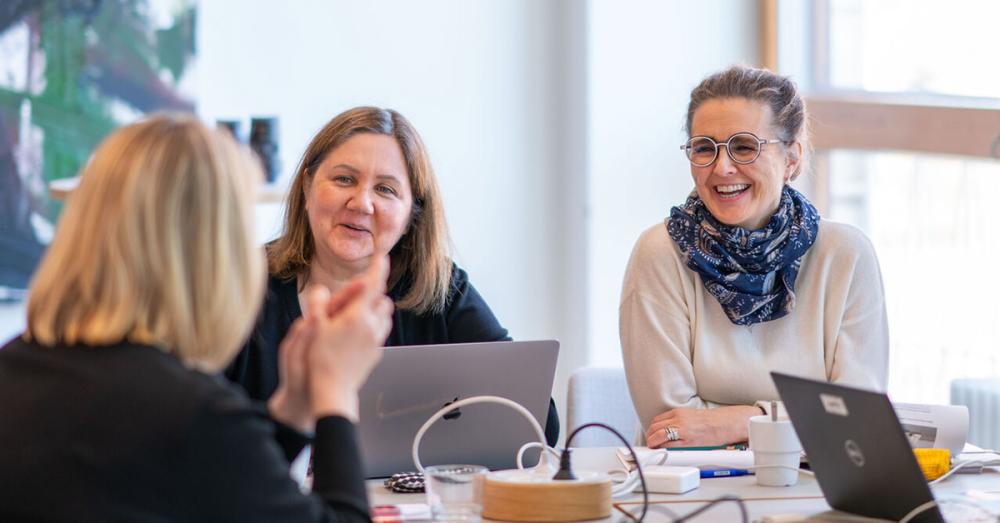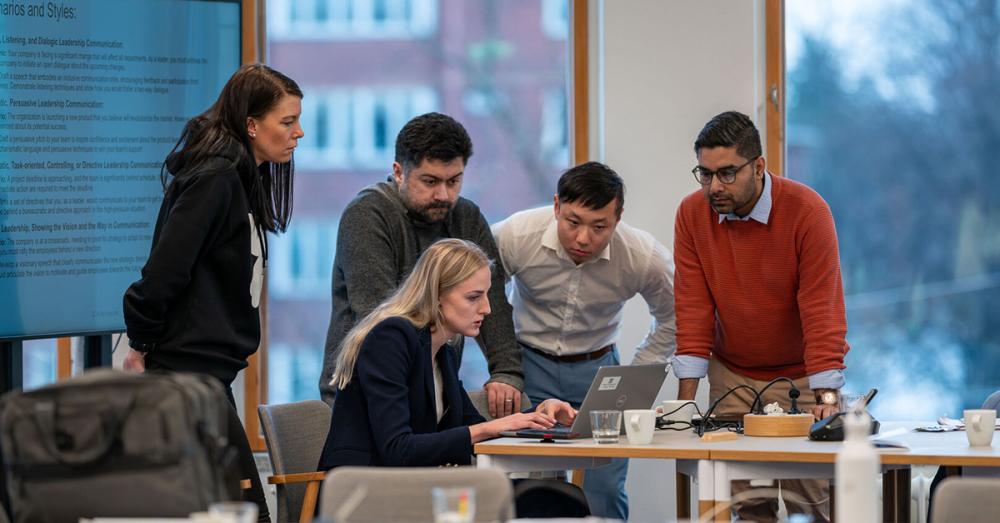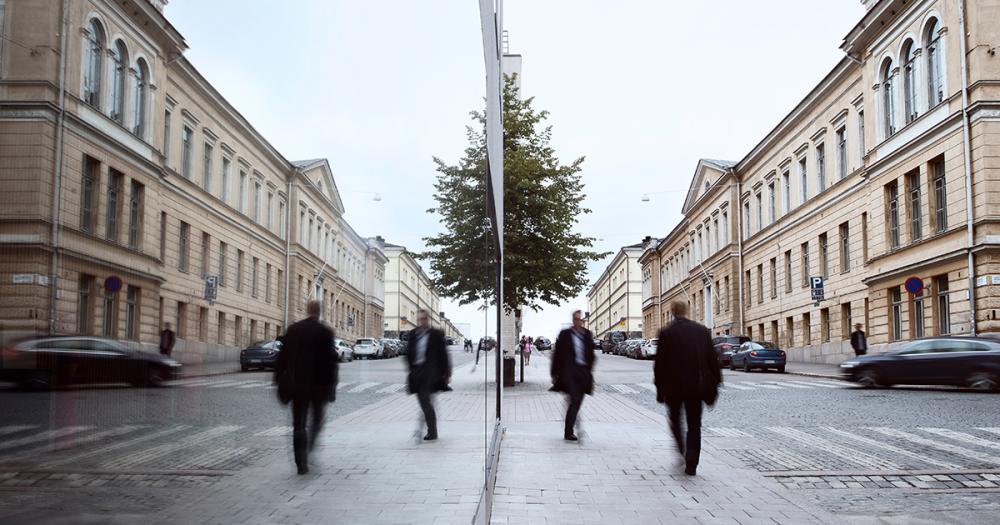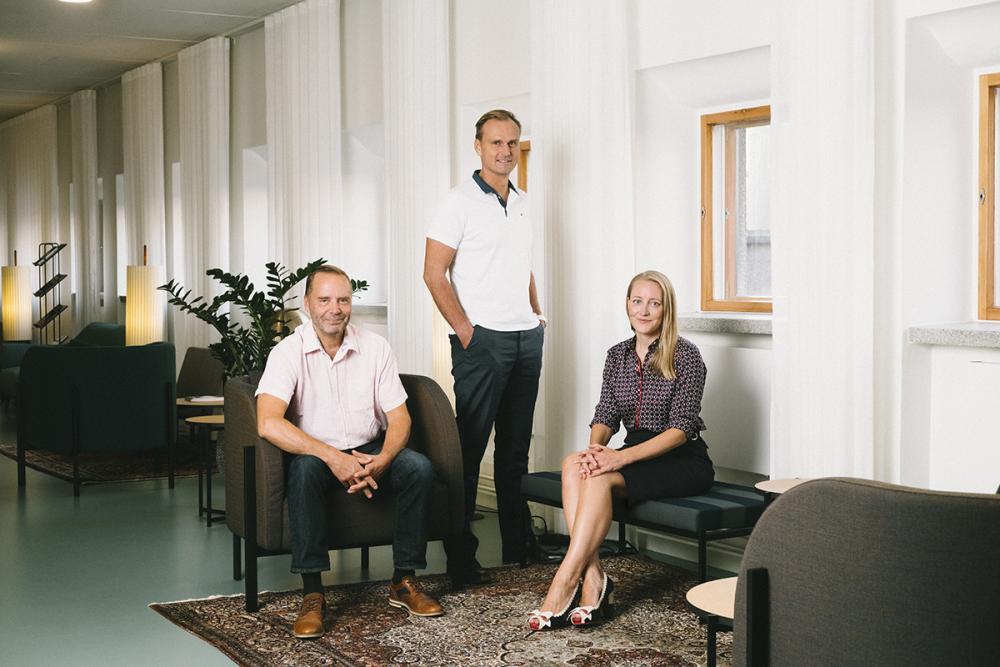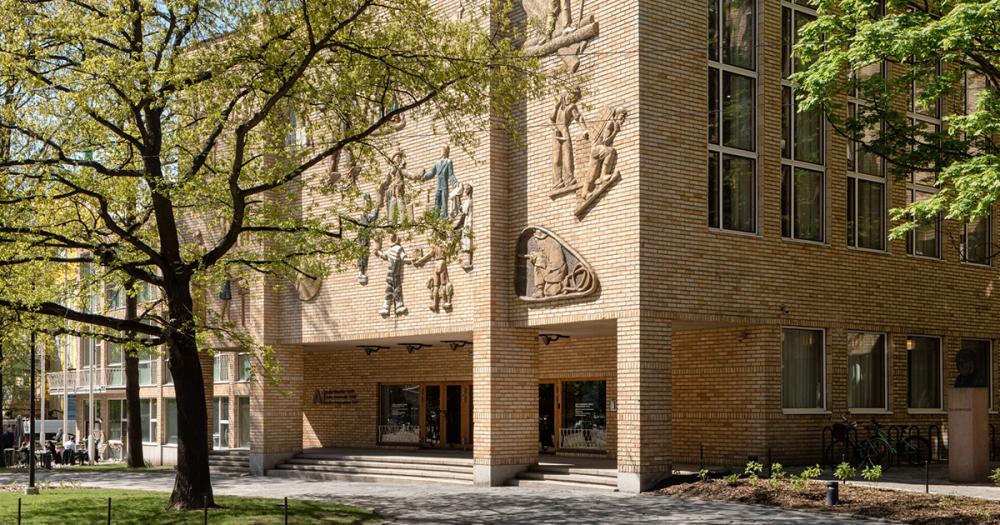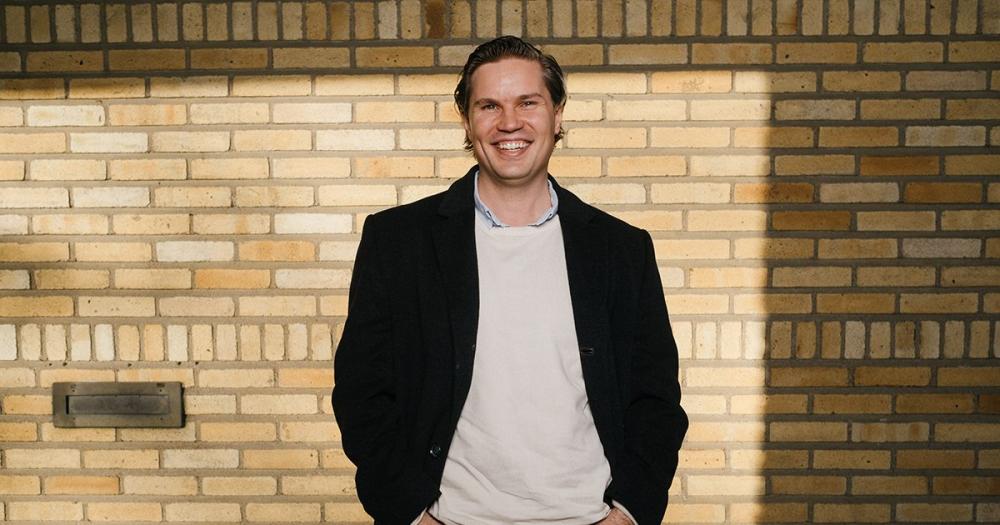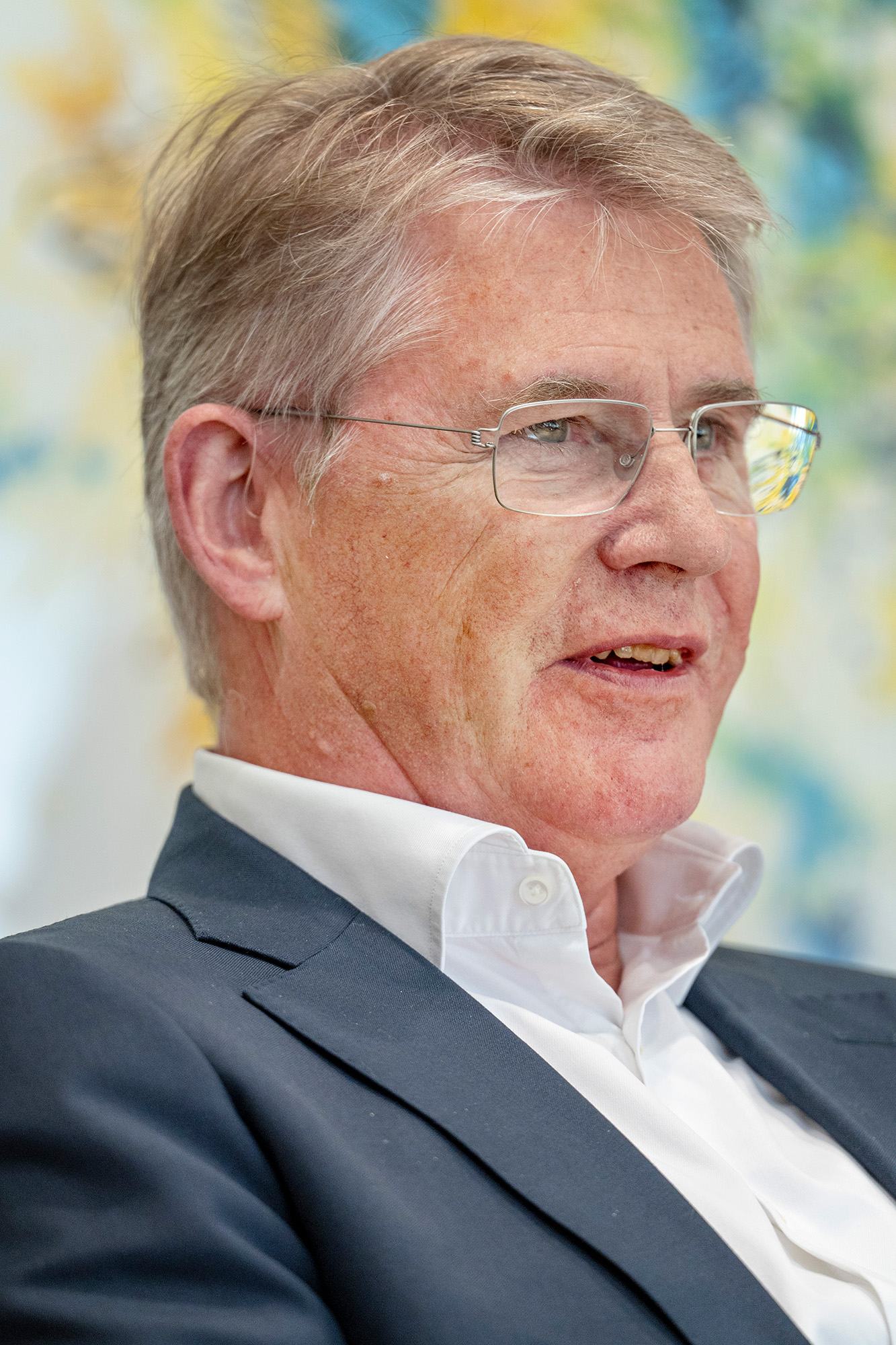"Revitalising Nordic relations is important and may become even more important in the near future," says Lars Rebien Sørensen.
Sørensen, Chair of the Danish Novo Nordisk Foundation, spoke at the Saastamoinen Foundation Keynote event organized by the Saastamoinen Foundation and Aalto EE in early September 2024.
Nordic cooperation is important because China and the United States are outpacing development with their investments to domestic industries. Europe has potential, but Sørensen says politicians are currently looking too nationally in their approach.
"Europe is waking up to the fact that China and the US are subsidizing domestic industries to compete. Europe needs to do something similar and strive to become more competitive, more productive and more innovative.
Sørensen believes that the Nordic countries have the potential to contribute to the development.
"We have the potential to at least be part of the development if we cooperate a bit more."
"I am not saying that we are leading the change, because there are big investments in China and the US, but because of our common culture, history and mutual trust, we have the potential to at least be part of the development if we cooperate a bit more."
Sørensen's speeches carry a lot of weight. He is an award-winning leader and chairman of an influential foundation. Sørensen lead the Danish pharmaceutical company Novo Nordisk at the turn of the millennium, when the company focused on diabetes and metabolic disorders. This path has led to the later development of diabetes drug Ozempic and weight management drug Wegovy, which mimic gut hormones and help with weight loss.
Novo Nordisk has grown to become the largest company in Europe, and it is an incomparable success story. The company is so big that in 2023, its performance alone turned Denmark's GDP into growth. It accounted for around 4% of GDP and had a market capitalization of €560 billion.
Denmark is too small
The Novo Nordisk Foundation owns about a quarter of the pharmaceutical company but exercises more than 70% of the voting rights. The ownership structure has kept the company Danish rather than selling it off over time.
The Foundation manages €149 billion in assets and has already distributed money for science, education, social and humanitarian projects. A major focus is on the life sciences, including bio- and medical sciences, computing, physics and chemistry.
Going forward, the Foundation wants to shape the world on a broader front, tackling issues of sustainability, technology, artificial intelligence and quantum computing, and the green transition.
"As long as politicians support education and basic research, we can identify areas where we can grow stronger."
The Novo Nordisk Foundation wants to expand its activities beyond the borders of Denmark. In Denmark, its political influence is already becoming too great.
Finding projects and investment opportunities from Europe has been difficult.
Sørensen would like to see common academic interests in the Nordic countries, so that complementary areas of expertise can be exploited. Of course, the scientific projects funded must be of the highest quality, but this could well be found at Nordic universities.
"As long as politicians support education and basic research, we can identify areas where we can grow stronger. This inspires me, and I hope I can convey the same enthusiasm to my colleagues at the Foundation and the company's management," he says.
"They don't always agree with me," he adds laughing.
Foundations have a lot of power
Petteri Karttunen, chairperson of the Saastamoinen Foundation, points out that it is not always easy for foundations to balance public and private funding. In principle, the public sector should provide the structures and foundations that could support the content, but in practice the roles sometimes overlap.
"There should be more open debate on this. The public sector needs a lot of money, and it is being taken away from many good things. Then foundations can play a bigger role," says Karttunen.
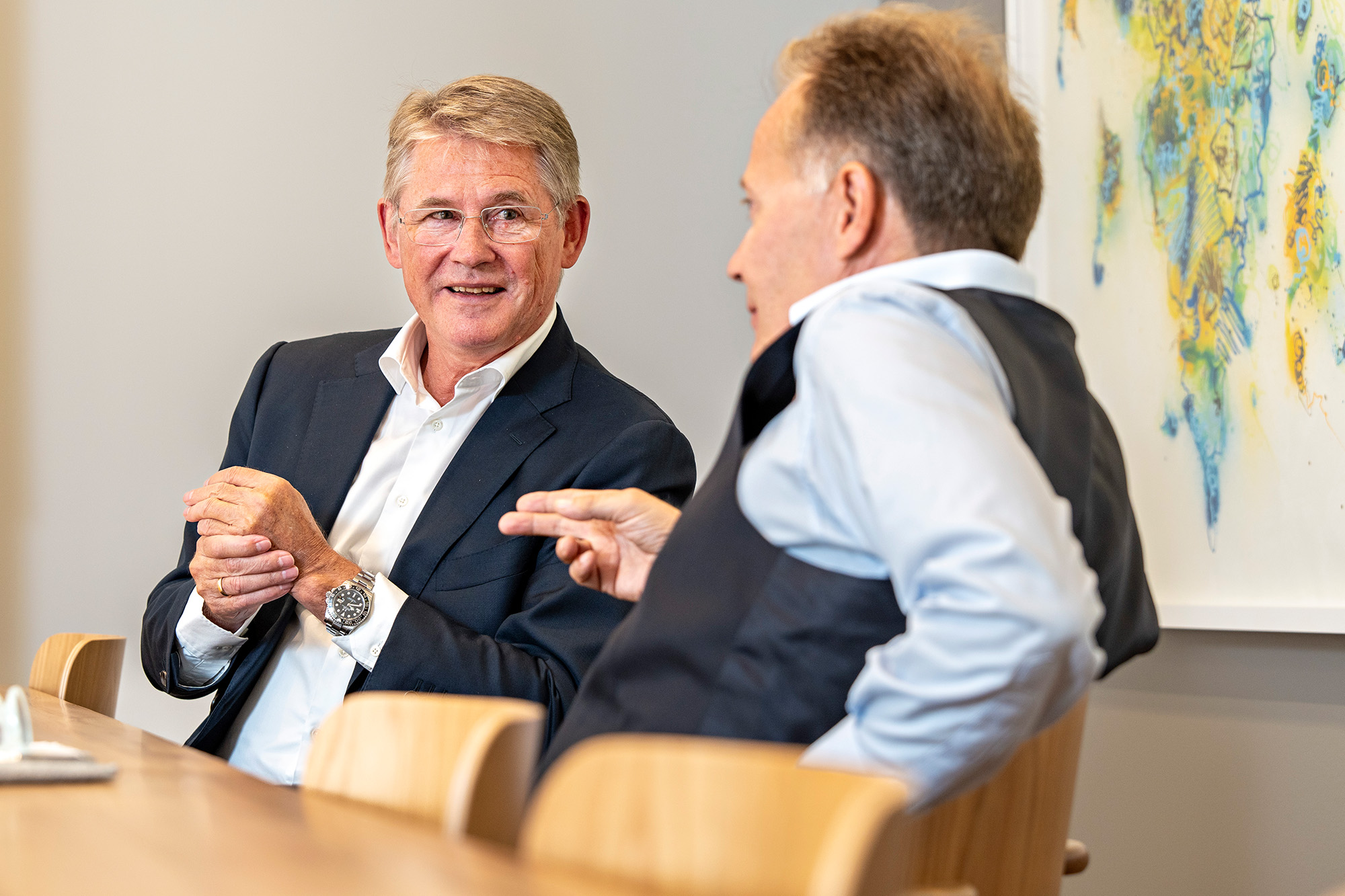
Sørensen together with Petteri Karttunen, chair of the Saastamoinen Foundation.
But Sørensen says we should be careful that foundations don't start replacing public sector support for basic research, for example.
"If something were to go wrong in our enterprise and we were unable to support research and public support was withdrawn, universities would be in trouble. We are like a frosting on top of public funding to support basic research by providing the resources to make science world class," says Sørensen.
The Nordic countries have reason to be proud
Positive stories and examples are desperately needed in the Nordic countries, especially in Finland. They bring electricity, enthusiasm, faith and hope to society.
Sørensen thinks that the Nordic countries could be a little more ambitious. Less modesty would serve the countries well.
"I think we need more mentoring in positive thinking."
"We are also entitled to be a little imperialistic in the sense that we have created societies in the Nordic countries that the world needs more of. We have a good balance between capitalism and socialism. Sometimes the balance swings too far in one direction, but that is a fine tuning on a world scale."
Karttunen has noticed that we focus too much on the problems. For example, when it comes to Nokia, people remember to tell us what went wrong, even though a lot was done right.
"I think we need more mentoring in positive thinking," says Karttunen.
Leadership lessons from the US
Sørensen's experience of ambition and positive stories comes from the US, where he worked for six years when he was younger.
"I was young in the 1980s, and my whole world opened up. The environment encouraged me to dream big and be ambitious."
Sørensen is an award-winning leader and known for his ambition, as evidenced by Novo Nordisk's success. For example, the prestigious Harvard Business Review named him one of the top-performing executives in 2015.
He points out that leaders have a big role to play in creating positive thinking and stories: they need to create an inspiring vision for the future of the company, and something that employees feel they want to belong to and dedicate their working lives to. Employees should feel that they are not just a variable cost, but part of the institution and that dismissal is a last resort.
"The role of a leader is demanding and is becoming more demanding as the world becomes more complex."
"The role of a leader is demanding and is becoming more demanding as the world becomes more complex. They must put himself on the line and make visible what they believe in."
But Sørensen does not follow his own teachings all the time but remains modest in a Nordic way. He puts Novo Nordisk's success partly down to good luck, because modern lifestyles are fuelling the development of diabetes and metabolic diseases, where the company has special expertise. The ownership structure has ensured long-term development rather than quarterly rushing.
He reminds leaders to be humble.
"If we leaders succeed, it is often because of circumstances that have favoured us as individuals. We have worked hard and sacrificed something in our personal lives, but we have been given opportunities. The timing was right. We may not be as great as we think. So, listen to your colleagues and learn from them. A company is only as good as its people. They are the ones who have the solutions. Without them, even the best leader cannot succeed," says Sørensen.
